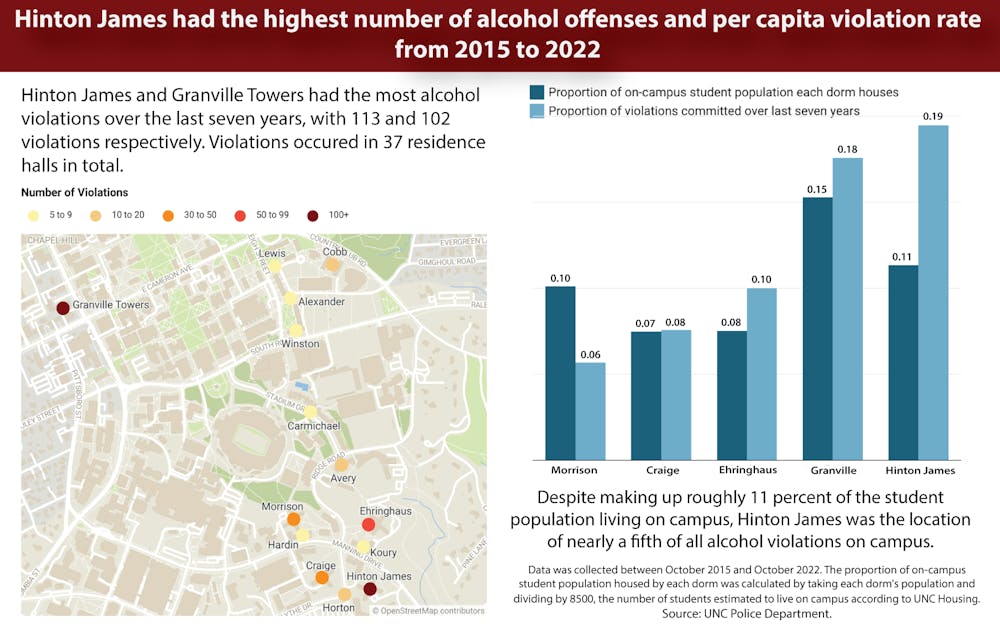According to the National Institute on Alcohol Abuse and Alcoholism, most college students find the first six weeks of their first year to be a common time to consume alcohol. This holds true at UNC, where the majority of alcohol violations occur in traditionally first-year residence halls.
Between October 2015 and October 2022, 580 alcohol violations in dormitories were reported to Chapel Hill Police Department. Hinton James Residence Hall, which holds 11 percent of the on-campus student population on average, was the site of approximately 19 percent of these violations.
Senior Grace Ingledue’s introduction to drinking occurred in her first year, when she met a 20-year-old Tinder date on campus who offered to bring a bottle of red wine to her dorm room. Ingledue said that she and her date could have gotten in trouble.
“I was like ‘Yeah, I want to try drinking! I’m an adult now, I can do what I want!’” she said. “I got a tattoo that same month. We drank a bottle of red wine and watched cartoons. It was a good vibe, but I was definitely very, very young.”
While students who violate the campus alcohol policy may be subject to disciplinary sanctions, UNC’s current policy focuses on mitigating the harms of alcohol abuse in the student body.
Dean Blackburn, who serves as director of UNC Student Wellness Services, spoke about the creation of an alcohol policy that focused on recovery and safety before punitive measures.
“A public health approach is by its nature an interdisciplinary, interventive approach – a lot of intervention, a lot of education, a lot of skill building,” Blackburn said. “There can be levels of accountability, but accountability isn’t the driving force in that. The driving force would be ‘What do we want our students to learn – both ahead of time, to make good decisions, or shortly after potentially making a mistake?’”
With the knowledge that many students will choose to drink on campus during their first year, Blackburn emphasized three major rules to drinking safely at UNC and avoiding dangerous situations: staying active and healthy, bringing your own drinks and traveling in a group with at least one dedicated sober person.
The first point is especially important, as sleep deprivation, hunger and dehydration can cause alcohol to affect students at “even twice the rate it normally would,” he said.



